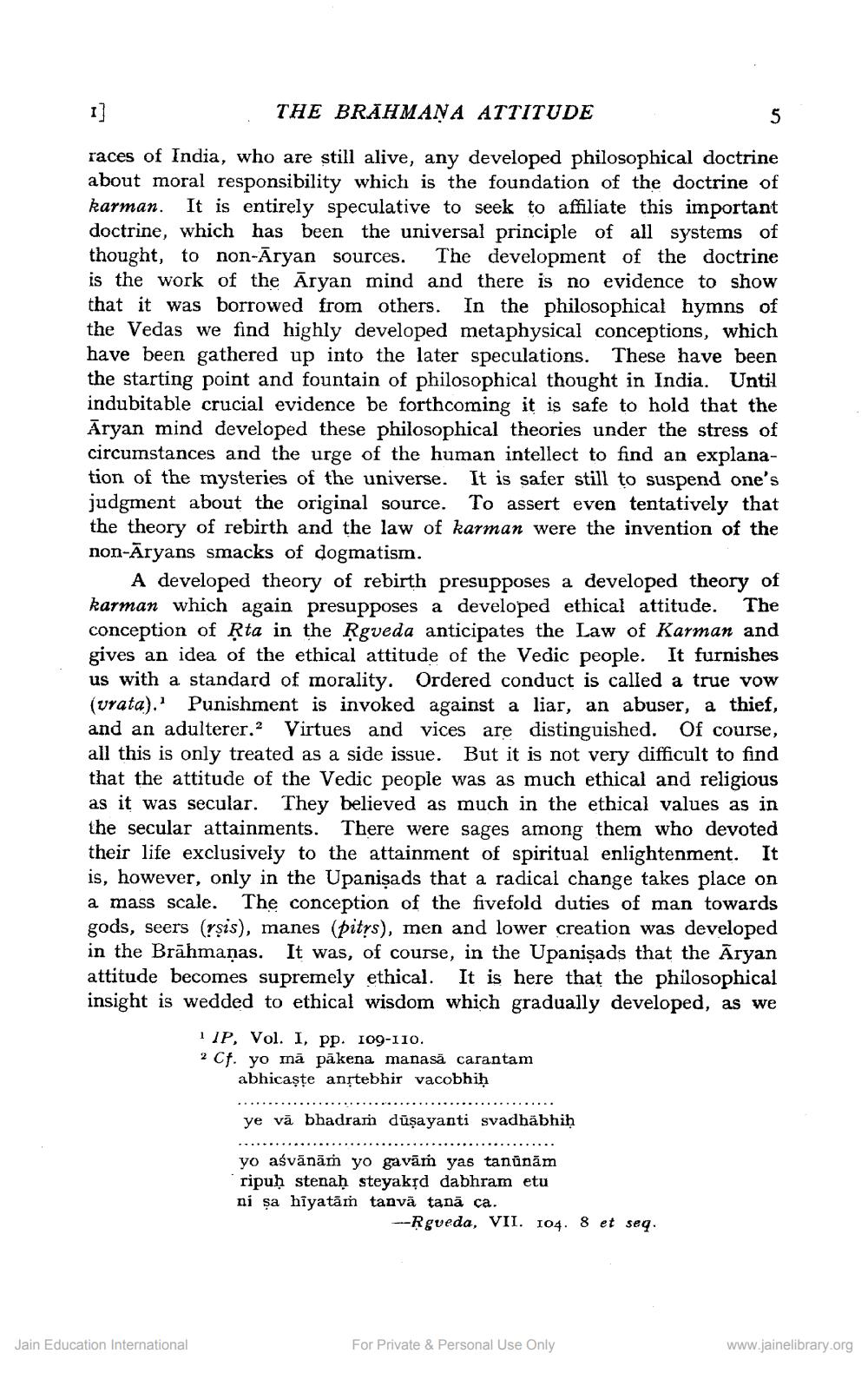________________
THE BRAHMANA ATTITUDE
races of India, who are still alive, any developed philosophical doctrine about moral responsibility which is the foundation of the doctrine of karman. It is entirely speculative to seek to affiliate this important doctrine, which has been the universal principle of all systems of thought, to non-Aryan sources. The development of the doctrine is the work of the Āryan mind and there is no evidence to show that it was borrowed from others. In the philosophical hymns of the Vedas we find highly developed metaphysical conceptions, which have been gathered up into the later speculations. These have been the starting point and fountain of philosophical thought in India. Until indubitable crucial evidence be forthcoming it is safe to hold that the Āryan mind developed these philosophical theories under the stress of circumstances and the urge of the human intellect to find an explanation of the mysteries of the universe. It is safer still to suspend one's judgment about the original source. To assert even tentatively that the theory of rebirth and the law of karman were the invention of the non-Aryans smacks of dogmatism.
A developed theory of rebirth presupposes a developed theory of karman which again presupposes a developed ethical attitude. The conception of Rta in the Rgveda anticipates the Law of Karman and gives an idea of the ethical attitude of the Vedic people. It furnishes us with a standard of morality. Ordered conduct is called a true vow (vrata).' Punishment is invoked against a liar, an abuser, a thief, and an adulterer.2 Virtues and vices are distinguished. Of course, all this is only treated as a side issue. But it is not very difficult to find that the attitude of the Vedic people was as much ethical and religious as it was secular. They believed as much in the ethical values as in the secular attainments. There were sages among them who devoted their life exclusively to the attainment of spiritual enlightenment. It is, however, only in the Upanişads that a radical change takes place on a mass scale. The conception of the fivefold duties of man towards gods, seers (rşis), manes (pitys), men and lower creation was developed in the Brāhmaṇas. It was, of course, in the Upanişads that the Āryan attitude becomes supremely ethical. It is here that the philosophical insight is wedded to ethical wisdom which gradually developed, as we
TIP, Vol. I, pp. 109-110. 2 Cf. yo nā pākena manasä сarantam
abhicaște anstebhir vacobhiḥ
ye vā bhadram dūşayanti svadhäbhiḥ
yo aśvānām yo gavāṁ yas tanünām ripuḥ stenah steyakỊd dabhram etu ni sa hiyatām tanvā tanā ca.
--Rgveda, VII. 104. 8 et seq.
Jain Education International
For Private & Personal Use Only
www.jainelibrary.org




